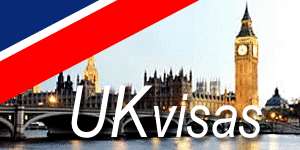
Introduction
One of the requirements you must satisfy for the grant of a UK visit visa is to show that you have sufficient funds to maintain yourself for the duration of your stay. This is of course linked to your personal circumstances. You must be able to show that you have sufficient funds to pay for your maintenance either by yourself or a by third party.
How much money should I have in my account?
The law does not set any minimum amount you must have in your account. Having a large bank balance does not necessarily mean that you have sufficient funds; neither is a low bank balance dispositive of insufficient funds.
The officer will look at your Visa Application Form (VAF) and any financial supporting documents to assess whether you have sufficient funds. Your financial documents include your bank statement, bonds and shares certificates, fixed deposits, etc. The officer will consider your total monthly income as stated by you and as shown on your documents. In assessing your monthly income they will consider the source and regularity of the income and whether it will continue to be paid to you whilst you are visiting the UK.
Having established your income, the officer will take account of any ongoing financial commitments you may have. Examples of ongoing financial commitments include your living costs, rent or mortgage payments, utilities, expenses on dependents, etc. You will be required to state on your VAF the monthly amount you spend on yourself and dependents and the amount you spend on living costs. The total of the two will count as your total financial commitments.
So in essence, your financial circumstances will be determined by your monthly total income minus your total financial commitments. The balance will then be assessed against the cost of your visit to determine whether your proposed visit is justifiable in the light of your personal circumstances.
Let us assume that you stated on your VAF that your total monthly income is GHC 1950. You also stated that you spend GHC 800 on yourself and your dependents and GHC 650 on living costs. Your total financial commitments will therefore be GHC 1,450. This will be deducted from your total monthly income of GHC 1950 to leave you with a monthly disposal income of GHC 500. It is this disposable income of GHC 500 that will be used to assess whether you have sufficient funds for the trip in the light of your personal circumstances.
Sources of funds in your account
The general rule is that you must be able to show the source of funds in your account. Where your documents show that you have sufficient funds for your planned stay, but either all or the majority of these funds have not been held in your account for long the officer may want to make further checks to establish the origins of the money.
In addition, the timing of the deposits made into your account may also raise concerns. Deposits made immediately prior to the printing of your bank statement or deposits which do not accord with the history of your account may be viewed with suspicion. For example, if you submitted a bank statement for the months of June to December, and the deposits made in the months of November and December were large and disproportionate to the earlier months; this may raise concerns with the officer as to whether your bank statement indeed reflects your true financial circumstances.
How many months must my bank statement cover?
Prior to April 2015 you were required to submit a bank statement showing transactions for 6 months. Though the new Document Guidance is silent on the period your bank statement must cover; it is advisable to submit a bank statement of not less than six months. Where possible, you must submit a bank statement of not less than 12 months to resolve any doubts about your claimed financial circumstances.
Emmanuel Opoku Acheampong
Disclaimer: This article only provides general information and guidance on UK immigration law. The specific facts that apply to your matter may make the outcome different than would be anticipated by you. The writer will not accept any liability for any claims or inconvenience as a result of the use of this information. The writer is an Immigration law advisor and a practicing law attorney in Ghana. He advises on U.S., UK, and Schengen immigration law. He works part-time for Acheampong & Associates Ltd, an immigration law firm in Accra. He may be contacted on [email protected]




 We’ll protect state wealth from opaque deals – Prof Jane Naana
We’ll protect state wealth from opaque deals – Prof Jane Naana
 Mauritania president says running for second term in June polls
Mauritania president says running for second term in June polls
 I won't ever say I was a mere driver’s mate' — Prof. Opoku-Agyemang
I won't ever say I was a mere driver’s mate' — Prof. Opoku-Agyemang
 2024 polls: 'EC struggling to defend credibility'— Prof. Opoku-Agyemang
2024 polls: 'EC struggling to defend credibility'— Prof. Opoku-Agyemang
 Akufo-Addo gov't's 'greed, unbridled arrogance, unrestrained impunity, sheer dis...
Akufo-Addo gov't's 'greed, unbridled arrogance, unrestrained impunity, sheer dis...
 Election 2024: Ghana needs an urgent reset, a leadership that is inspiring – Ma...
Election 2024: Ghana needs an urgent reset, a leadership that is inspiring – Ma...
 Partner NDC to rollout a future of limitless prospects – Prof Jane Naana Opoku-A...
Partner NDC to rollout a future of limitless prospects – Prof Jane Naana Opoku-A...
 NPP will remain in gov’t till Jesus comes — Diana Asamoah
NPP will remain in gov’t till Jesus comes — Diana Asamoah
 Sunyani Technical University demands apology from former SRC president over sex-...
Sunyani Technical University demands apology from former SRC president over sex-...
 'Dumsor' was resolved by Mahama but ‘incompetent' Akufo-Addo has destroyed the g...
'Dumsor' was resolved by Mahama but ‘incompetent' Akufo-Addo has destroyed the g...
